April 17, 2025 | 09:00 GMT +7
April 17, 2025 | 09:00 GMT +7
Hotline: 0913.378.918
April 17, 2025 | 09:00 GMT +7
Hotline: 0913.378.918
The market for Islamic countries (Halal) is one of the largest and fastest-growing markets globally. With more than 2 billion Muslims in the world, this market has great potential for export businesses, especially poultry exports.
On average, Muslims spend about USD 20,000 billion/year to buy these foods. In Southeast Asia, there are about 860 million Muslims. They spend about USD 460 billion/year to buy Halal-certified foods.
According to Mr. Nguyen Van Long, Director of the Department of Animal Health, the No. 1 principle of any importing country in the world is that animals and animal products must come from a disease-free country or territory. Vietnam is not yet a disease-free country, so the prerequisite is to have disease-free areas according to the standards of the World Organization for Animal Health (WOAH/OIE).
"Once there are disease-free areas, it is necessary to have facility chains ensuring that breeds, animal feed, slaughtering, and processing comply with the requirements for disease safety and food hygiene and safety.
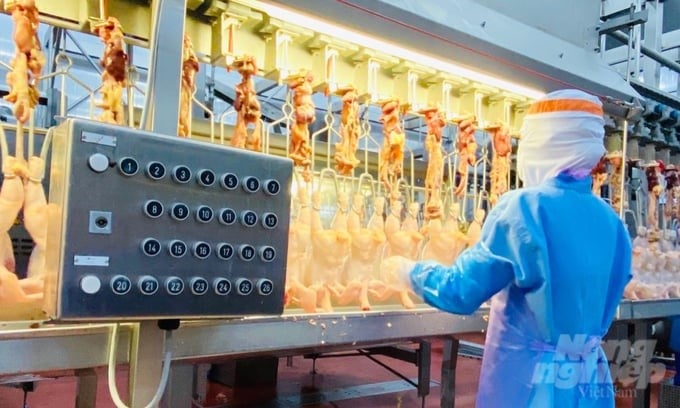
The Halal market has a lot of potential for Vietnam to export chicken meat, products processed from chicken meat, and poultry eggs. Photo: Tran Trung.
Particularly, the Halal market has more strict requirements on each stage of production, from food, breeds, and rearing to slaughtering plants and processed products, with very specific processes," Mr. Long noted.
Specifically, the breed must be certified, and its parents must be raised according to Halal procedures. Chickens raised from 1 day old until slaughtered must use food that meets Halal standards, and the slaughtering process must also follow Halal regulations.
Vietnam National Halal Company is currently the representative office of international Halal certification agencies from countries with strict Halal standards and a high international reputation. The certifications issued by this company will allow poultry products to approach leading Halal markets such as the Middle East, Malaysia, Indonesia, etc.
Mr. Tran Van Tan Cuong, Director of Vietnam National Halal Company, said that for food, Halal standards require that the process of preparing Halal food comply with Islamic rules and that the integrity, safety, and hygiene of products be maintained throughout the supply chain, not just the input raw materials.
"There is no unified Halal standard in more than 200 Muslim-inhabited countries in the world. Many Muslim-majority countries appear to adhere to their Halal standards, which are not necessarily compatible with those of other countries. Similarly, many Halal certification organizations issue Halal certificates based on their criteria, and these criteria may not match the criteria issued by other certification organizations," Mr. Cuong noted.
To clarify the above opinion, Mr. Cuong gave an example: with JAKIM's MS 1500-2029 standard set, certified products will only enter the Malaysian market; the HAS 23000 standard set will only enter the Indonesian market; and the GSO 2055-1 standard set announced by SFDA will enter Middle Eastern countries. If businesses want to ensure customs clearance of goods with the remaining Islamic countries, they need to make two simultaneous certifications, HAS and GSO.
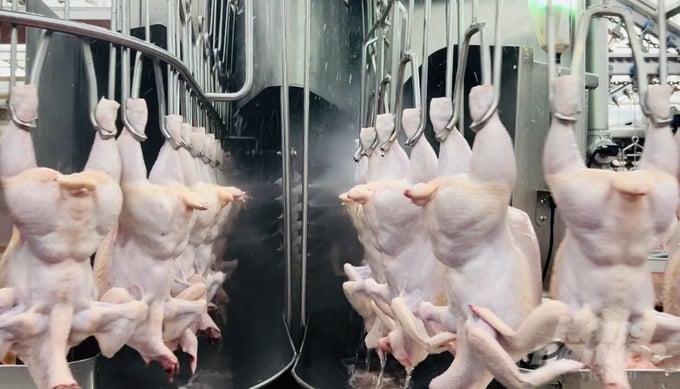
Promoting the export of poultry meat to the Halal market will help Vietnam's livestock industry gain new successes and balance the market. Photo: Tran Trung.
Vietnam's biggest limitation in penetrating the Halal market is that the proportion of Muslims is very low, and very few of them are trained in the Halal certification process. However, that does not mean that Vietnam does not have opportunities to exploit this market.
"The most important condition is that countries and businesses are clearly aware of the Halal industry's importance and ability to contribute to national revenue. From there, strengthen training, investment promotion, and negotiation activities to open Vietnamese agricultural products as well as other industries to this potential market," shared Mr. Tran Van Tan Cuong.
CPV Food Binh Phuoc Company is one of the few businesses in the livestock industry that has achieved Halal certification. According to Mr. Nguyen Van Cam, Assistant General Director of C.P. Vietnam Livestock JSC, to have this strict certification, in addition to complying with humanity in slaughter, such as chickens being in a comfortable state and enjoying animal welfare, the sticking process must be done by Muslims.
The workers directly performing the work will pray before sticking the chicken. The blade must be very sharp and only cut in one line to ensure the chicken passes away quickly and smoothly. Each worker performing this step also has a certain amount of time off during their shift so that they can pray in accordance with Halal standards.
"When processed, chicken meat is cut into individual shapes and sizes as well as marinated and processed according to each customer's own recipe. In particular, the product must go through an X-ray machine and a metal detector to remove impurities (if any) mixed in the food and then be frozen at -18 oC to ensure quality," said Mr. Cam.
Currently, the country's total poultry flock is about 560 million heads. This is an extremely good opportunity for Vietnam's poultry industry to grasp. This not only helps increase production value for breeders but also increases the position of Vietnam's poultry industry. Some Halal markets have proactively sought chicken meat supply sources from Vietnam.
Deputy Minister of Agriculture and Rural Development Phung Duc Tien said that this is a potential market for Vietnam to export chicken meat, products processed from chicken meat, and poultry eggs.
Vietnam is also making efforts to build facilities and areas that can meet standards to obtain more Halal certification. The Department of Animal Health has also negotiated with many Halal markets so that poultry products can be exported to this market.
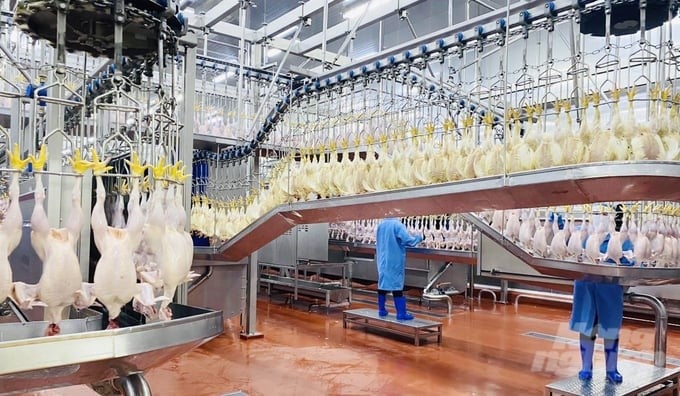
To export poultry meat to the Halal market, businesses must meet many strict and specific requirements. Photo: Le Binh.
"From 2023, the Ministry of Agriculture and Rural Development has prepared for the export of poultry meat to the Halal market. Up to now, we expect that each month Vietnam can export 1,000 tons of poultry meat to the Halal market," said Deputy Minister Phung Duc Tien.
De Heus Group has a clear strategy to export chicken meat, products processed from chicken meat, and poultry eggs to the Halal market and other potential markets.
In recent times, many units have come to survey and evaluate De Heus's breeding and slaughtering processes. As a result, the units were very satisfied, highly appreciated, and willing to cooperate and support De Heus in perfecting the processes to soon import products into the market.
Mr. Gabor Fluit, General Director of De Heus Global, said that the Halal market should be approached in two segments: short-term and long-term. In the short term, some Islamic countries have a need to import whole chickens, which is an easy and step-by-step path for Vietnam to affirm its brand. Regarding the long-term vision, the Ministry of Agriculture and Rural Development and De Heus will develop strategies to achieve Halal certification.
"De Heus is trying to implement solutions to improve disease safety procedures in the livestock linkage chain according to WOAH/OIE regulations. We try to complete and have the importing country accept the disease-free chicken meat production chain by December 2025," said Mr. Gabor Fluit.

Successful exports to the Halal market are considered "killing many birds with one stone," opening up many opportunities for Vietnam's livestock industry. Photo: Le Binh.
CPV Food Binh Phuoc Company is one of the few businesses in the livestock industry that has achieved international Halal standard certification. Mr. Wirat Wongpornpakdee, Senior Deputy General Director of Food and New Business Development of C.P. Vietnam, said C.P's vision is to become the world's kitchen. Therefore, promoting the export of poultry products to the Halal market is one of the company's key tasks.
According to Mr. Nguyen Van Long, Director of the Department of Animal Health, bringing poultry products into the Halal market is not only a success but also a stepping stone for many new steps forward in Vietnam's livestock industry. That is the clearest affirmation about Vietnam's livestock quality and veterinary work for the export of livestock products.
"Focusing on exporting poultry products to the Halal market also aims to prove to the international community that Vietnam has met this demanding market. This also helps other markets have trust, objective recognition, and preference for poultry products in particular and animal products in general," shared Mr. Nguyen Van Long, Director of the Department of Animal Health.
Translated by Thu Huyen
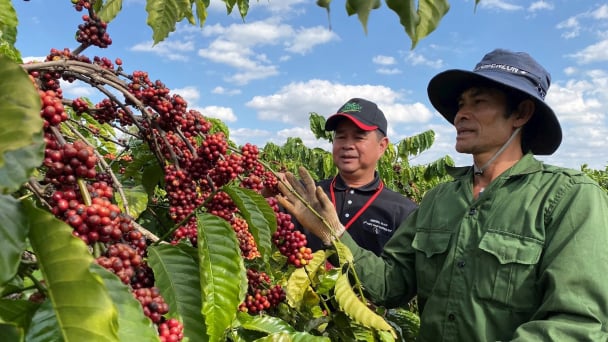
(VAN) Businesses emphasize fairness and equality when integrating social factors into their sustainable development strategies.
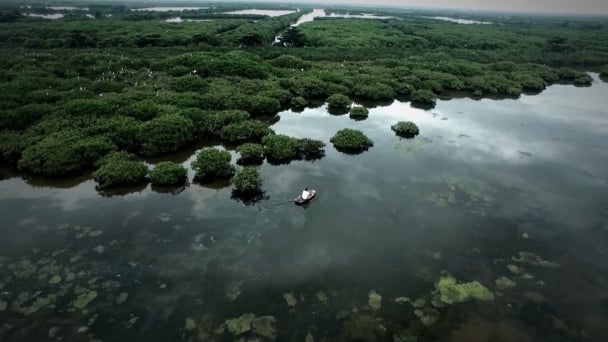
(VAN) French organizations and enterprises propose that Thai Binh province provide potential and long-term cooperation contents related to climate change response and green industrial development.
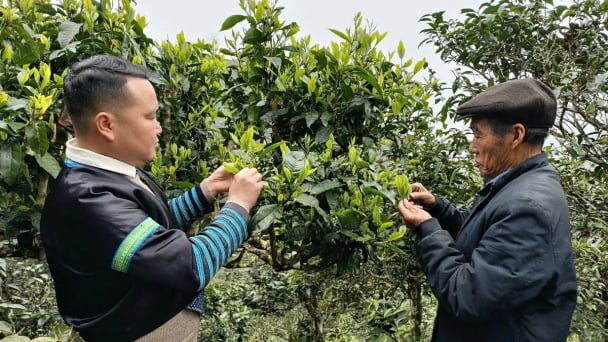
(VAN) Shan Tuyet tea is considered a 'heavenly treasure'. The H'mong people allow the tea to grow naturally, adhering to organic production principles, with the aim of exporting the product.
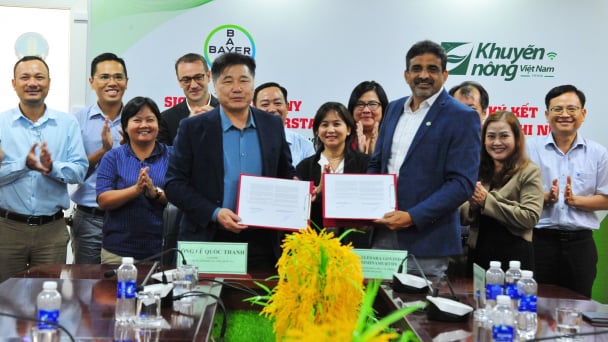
(VAN) Bayer Vietnam and the National Agricultural Extension Center have signed a partnership agreement to expand the development of effective and safe farming models for rice, durian, and coffee.
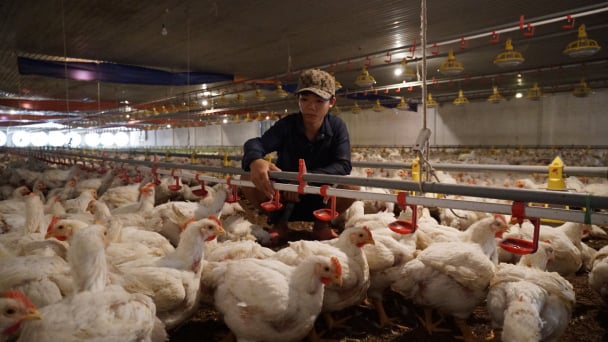
(VAN) Tay Ninh province possesses all the favorable conditions, from natural advantages to geographic location and social harmony, to drive economic development, particularly in attracting investment and advancing modern livestock farming.
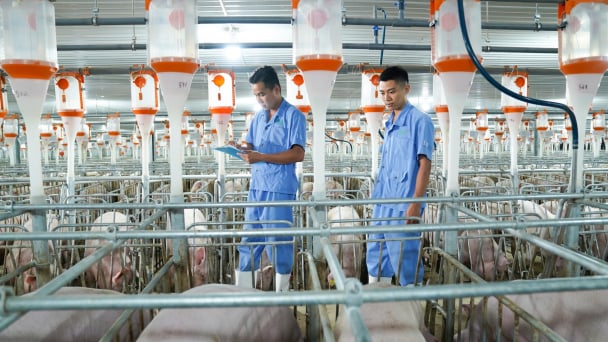
(VAN) Notably, every link in BAF's entire closed livestock value chain Feed - Farm - Food has received international certification.
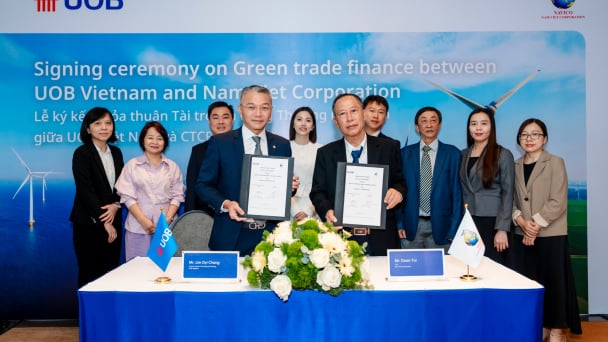
(VAN) UOB Vietnam has recently signed a green credit agreement with NAVICO to develop sustainable aquaculture that meets international standards.